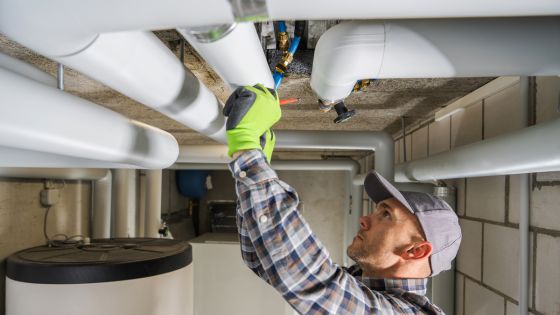In the world of plumbing, success is not just about fixing pipes and unclogging drains. It’s also about mastering the art of business. A thriving plumbing business requires a combination of technical skills and savvy business strategies. In this blog post, we’ll dive into the world of plumbing business strategies and explore how they can lead to prosperity in the industry.
1. Customer-centric service
The foundation of any successful plumbing business is exceptional customer service. When a customer has a plumbing emergency, they want a reliable, responsive, and friendly plumber to come to their rescue. Building trust and a good reputation through outstanding customer service can lead to repeat business and referrals.
Responsive communication, arriving on time, and treating customers with respect are key components of excellent service. Train your staff to go the extra mile in addressing customer needs and concerns, and you’ll set your plumbing business apart from the competition.
2. Marketing mastery
In the digital age, effective marketing is essential for the growth of any business, including plumbing. Whether you’re a local plumber or a larger plumbing company, a well-crafted marketing strategy can help you reach a wider audience and increase brand visibility.
Invest in a professional website that showcases your services, customer testimonials, and contact information. Leverage social media platforms like Facebook, Instagram, and LinkedIn to engage with potential customers and share valuable plumbing tips and insights. Paid advertising and search engine optimization (SEO) can also help you appear prominently in online searches.
3. Strategic pricing
Setting the right prices for your plumbing services is crucial for both profitability and competitiveness. Research your local market to understand the pricing landscape and the rates charged by your competitors. Keep in mind that pricing should cover your costs while allowing you to generate a reasonable profit.
Consider offering different pricing tiers based on the complexity of the job or the time of day. For example, emergency services might come at a premium rate, while routine maintenance can be priced differently. Transparent pricing and providing detailed estimates can also build trust with customers.
4. Employee training and development
Your plumbing team is the backbone of your business, and their skills and knowledge can significantly impact your success. Invest in ongoing training and development programs to ensure that your plumbers are equipped to handle a wide range of plumbing issues, from routine maintenance to complex installations.
Encourage your employees to pursue certifications and stay updated with the latest plumbing technologies and techniques. A knowledgeable and skilled team not only delivers better service but also builds trust with customers, leading to higher customer satisfaction and loyalty.
5. Service diversification
While plumbing is your core service, consider expanding into related services to diversify your revenue streams. This could include HVAC (heating, ventilation, and air conditioning), bathroom and kitchen remodeling, or even emergency response services.
Diversification not only increases your earning potential but also allows you to serve your existing customers better. When they have a plumbing issue, they’ll turn to your business for related services, saving them the hassle of finding multiple contractors.
6. Efficient scheduling
Optimizing scheduling and dispatching is crucial to maximizing billable hours and minimizing downtime. Implementing a well-organized scheduling system can help you respond quickly to customer requests and allocate jobs efficiently to your plumbing team.
Consider using scheduling software that allows customers to book appointments online, simplifying the process and reducing the chance of scheduling conflicts. Additionally, tracking and analyzing your scheduling data can help identify areas for improvement and increase overall efficiency.
7. Inventory management
Effective inventory management is another key aspect of running a successful plumbing business. Keeping track of your inventory, ordering supplies in a timely manner, and minimizing waste can improve your bottom line.
Consider using inventory management software to track your stock levels and automate reordering processes. This not only ensures that you have the necessary parts and materials on hand when needed but also helps you control costs by reducing excess inventory.
8. Safety and compliance
Plumbing work involves handling potentially hazardous materials and working in challenging environments. Ensuring the safety of your employees and customers should always be a top priority. Compliance with safety regulations and industry standards is not only a legal requirement but also essential for maintaining a good reputation.
Provide your plumbing team with the necessary safety training and equipment, and conduct regular safety inspections to identify and address potential hazards. Customers are more likely to trust a plumbing business that prioritizes safety and compliance.
9. Technology integration
In today’s digital age, technology plays a crucial role in streamlining operations and enhancing customer service. Consider integrating plumbing software and technology solutions into your business processes.
Plumbing software can help you manage customer relationships, schedule appointments, track billing and payments, and even analyze business performance. Embrace technology to stay competitive and provide a seamless experience for your customers.
10. Networking and partnerships
Building strong relationships with other professionals in the industry can open up new opportunities and referrals. Connect with contractors, suppliers, and other businesses related to plumbing to create a network that benefits all parties involved.
For example, partnering with a remodeling contractor can lead to plumbing work for their projects, and recommending a reliable supplier to your customers can enhance their trust in your services. Networking can be a valuable source of leads and collaborations.
Conclusion
To succeed in the plumbing industry, one needs to master more than just technical expertise. Implementing plumbing business strategies such as customer-centric service, marketing mastery, strategic pricing, employee training, service diversification, efficient scheduling, inventory management, safety and compliance, technology integration, and networking are crucial to building a profitable plumbing business.
Remember, the plumbing industry is not just about pipes and pumps; it’s about the art of running a successful business. Therefore, in addition to providing excellent plumbing services, it’s essential to learn how to sell them effectively. By utilizing these strategies, you’ll not only meet your customers’ needs but also generate profits for years to come.




















